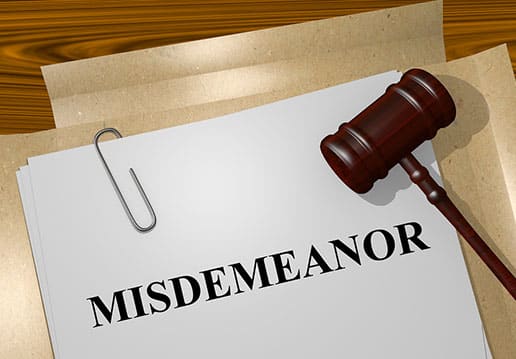Misdemeanor Charges

Misdemeanor charges in Wisconsin carry a maximum jail term of one year in county, or local, jail. There are four different classifications of misdemeanor charges: Class A, Class B, Class C, and Class U (unclassified). Unlike felonies, a Class A misdemeanor is not the most severe. Some, but not all, Class U misdemeanors are more severe than Class A misdemeanors. Schedule a consultation with Hogan Eickhoff today, or call (920) 450-9800.
While misdemeanor charges are not considered as serious as felony offenses, the consequences of being convicted of a misdemeanor can have a negative impact on you and your future. It is important to contact a skilled criminal defense lawyer who can minimize this impact.
Examples of Misdemeanors & Penalties
There are numerous misdemeanor crimes in Wisconsin, a few of which include:

Resisting/
Obstructing
This includes knowingly giving false information to a law enforcement officer or placing tangible evidence with the intent to mislead the law enforcement officer who is performing his or her official duty. This is a Class A misdemeanor, punishable by up to 9 months in jail and a fine up to $10,000.

Disorderly Conduct
Disorderly conduct occurs when a person engages in violent, abusive, indecent, profane, or unreasonably loud or disorderly conduct in which the conduct tends to lead to or provoke a disturbance. This crime is considered a Class B misdemeanor, punishable by up to 90 days in jail and a fine up to $1,000.
Effect of Habitual Criminality on Your Sentence
Wisconsin’s habitual criminality statute punishes you more harshly if you have a prior criminal record. If you are convicted of three misdemeanors within the five-year period immediately before the commission of the current crime, your criminal penalty can be increased by two years. Ultimately, you can wind up in prison due to a misdemeanor conviction.
